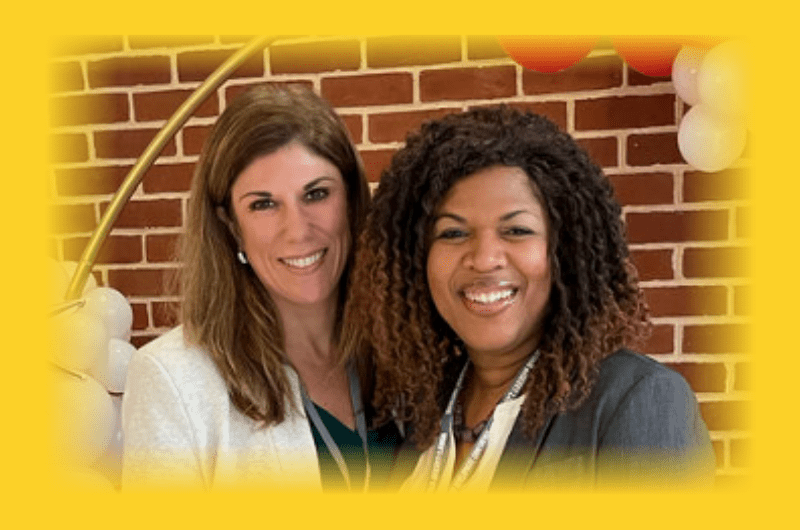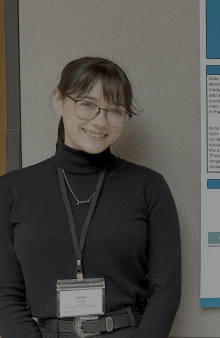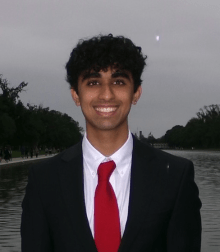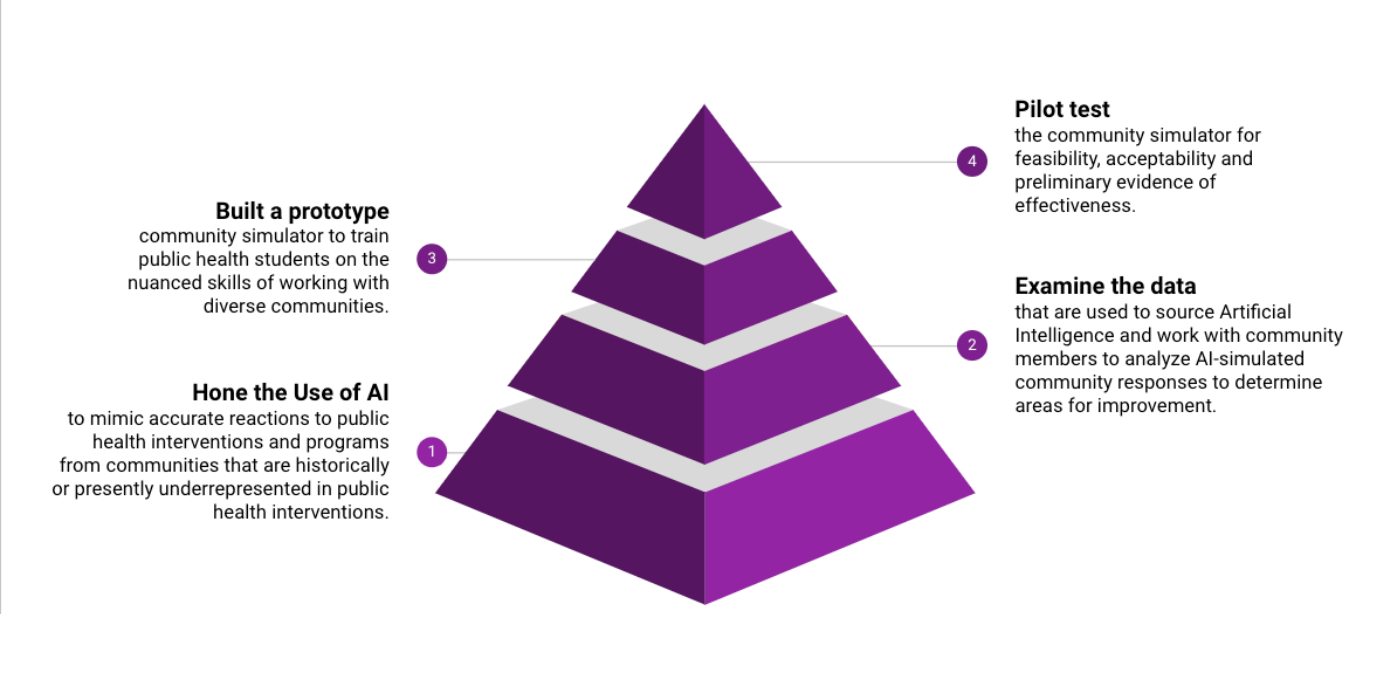In the 2023-2024 academic year, the Office of Public Health Practice & Community Engagement applied to the TLTC Teaching Innovation Grant and was one of the three 3-year grant awardees. In consultation with partners across the School of Public Health, the Department of Computer Science, and the broader community, PIs Dr. Tracy Zeeger and Dr. Sylvette La Touche-Howard intend to use artificial intelligence and machine learning to develop a community simulator training tool for students and public health practitioners to have experiential learning opportunities to practice mitigating, preventing, and ultimately overcoming the grand public health challenges of our time.
Project Team

Principal Investigators
Dr. Tracy Zeeger & Dr. Sylvette La Touche-Howard, Assistant Deans, Office of Public Health Practice and Community Engagement, will manage, develop, and oversee all activities related to this project.

Co-Principal Investigators
Dr. Tom Goldstein, Volpi-Cupal Endowed Professor, Department of Computer Science, will advise on language model creation and auditing.
Dr. Min C. Lin, Barry Mersky and Capital One Endowed Professor, Department of Computer Science, will advise on user-centric interface design using LLM & simulating, modeling, learning, & predicting user-behaviors.

Collaborators
Dr. Robert Gold, Professor Emeritus, Behavioral and Community Health
Dr. Melvin Seale, Assistant Clinical Professor, Health Policy and Management
Jenna Yang is a first-year PhD student in Behavioral and Community Health at the University of Maryland. She is a recent graduate of Washington University in St. Louis, earning her Master of Public Health degree with a focus on mental and behavioral health. During her time at WashU, she worked on projects focusing on mental healthcare advocacy in marginalized communities, as well as data equity and education. She hopes to continue her education and research experience to improve healthcare equity across populations and promote mental health as public health.
Raj Bhansali (he/him) is an undergraduate student in the Scholars Program at the University of Maryland, pursuing a double degree in Public Health Science and Finance. Raj is passionate about leveraging AI to address public health challenges and hopes to contribute to AI-driven public health initiatives. His goal in this project is to gain valuable experience researching, experimenting, and writing. Outside of his work in AI and public health, Raj is also currently pursuing an independent study exploring his interest in the intersections of financial literacy and healthcare access.
Angelo Parker is a senior at the University of Maryland, College Park pursuing a degree in Computer Science and looking to work in cybersecurity and IT post-graduation. He is passionate about technology and dedicated to learning how to make the internet a safer place.
Project Goals
Project Updates
- Recently hired our Graduate Assistant, Jenna, and two Undergraduate Interns, Raj & Angelo, to join the team.
- In September, we are launching a Qualtrics survey of Prince George’s County residents to better understand how individuals' demographic identities and personality traits interact and react to public health messages.
- Considerable development is being made on the AI community simulator by our Computer Science team. Our prototype should be ready for preliminary testing with students by the end of the fall semester.
- We have made significant progress on our literature review, laying a strong foundation for our ongoing work.


